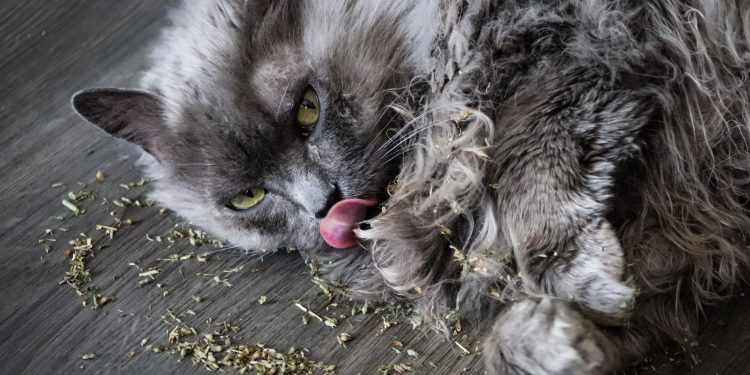Understanding CBD’s Non-Psychotropic Appeal in Feline Health Management
CBD, or cannabidiol, is a compound from the hemp plant. Unlike its relative marijuana, CBD doesn’t make you high. It’s been praised for its potential health benefits in humans, such as reducing pain, inflammation, and anxiety. Now, attention is turning to how it might help cats. Research on CBD in cats is less common than in humans or dogs, but knowledge is growing. The Waltham Petcare Science Institute conducted a thorough 6-month study, published in Frontiers in Veterinary Science, to explore CBD’s safety for cats. They tested 39 healthy cats, dividing them into two groups: one received CBD oil in their food, and the other got a placebo. The study was double-blind, so the bias was minimized. Each cat received 4mg of CBD per kg of body weight, a dosage informed by prior research. Some cats did not like the CBD flavor, but the study’s main takeaway was that CBD appears to be safe for cats over an extended period. There were no significant health differences between the CBD group and the placebo group, which is reassuring for cat owners considering CBD.
Bridging the Knowledge Gap and The Significance of New Research on CBD in Cats
The importance of the Waltham study is significant. It begins to bridge the gap in our understanding of CBD’s impact on cats. Previously, research has been skewed towards dogs and humans, but cats have distinct physiological traits that necessitate targeted studies. The researchers monitored important health indicators, such as the liver enzyme ALT, which can indicate liver health issues when elevated. Some cats on CBD showed higher ALT levels initially, but these levels normalized over time. This finding underscores the importance of careful monitoring when introducing CBD to cats, particularly those with pre-existing health conditions. The study paves the way for future research into CBD’s potential therapeutic benefits for cats with specific health issues or behavioral problems. However, it’s not an endorsement for CBD use in all cats. If you’re considering CBD for your cat, especially one with health complications, it’s crucial to consult with your veterinarian first.
Inside Waltham’s Landmark Study and Assessing Long-Term CBD Effects on Healthy Felines
Waltham’s study is notable because it’s one of the first to examine the long-term effects of CBD on cats. The researchers conducted an in-depth, six-month observation of the cats, offering a more comprehensive view of CBD’s role in a cat’s daily life over time. The study’s randomization process ensured that the assignment of cats to either the CBD or placebo group was purely by chance, eliminating selection bias. The precise dosing of CBD, tailored to each cat’s body weight, was crucial for determining an effective and safe dosage. The meticulous approach of the study lends credibility to its conclusions and marks a significant advancement in our understanding of how CBD could contribute to feline care. This research is a stepping stone towards integrating CBD into the routine management of cat health.
Unveiling the Study Outcomes and Safety and Tolerance of CBD in Cats’ Daily Diets
The findings from the Waltham study are encouraging. They suggest that CBD, when administered in the correct dosage, can be a safe component of a healthy cat’s diet. The cats in the study consumed CBD daily for six months without any major health complications related to CBD. This is great news for cat owners seeking alternative ways to enhance their cats’ health. However, this doesn’t mean that CBD is suitable for all cats. The study focused on healthy individuals, and the effects of CBD on cats with existing health issues remain unknown. Additionally, while the cats generally tolerated CBD, some did not enjoy the taste, indicating a need for more palatable CBD-infused pet products. If you’re interested in trying CBD for your cat, it’s important to proceed with caution. Consult with your veterinarian to determine if CBD is appropriate for your cat and to receive guidance on safe usage.





